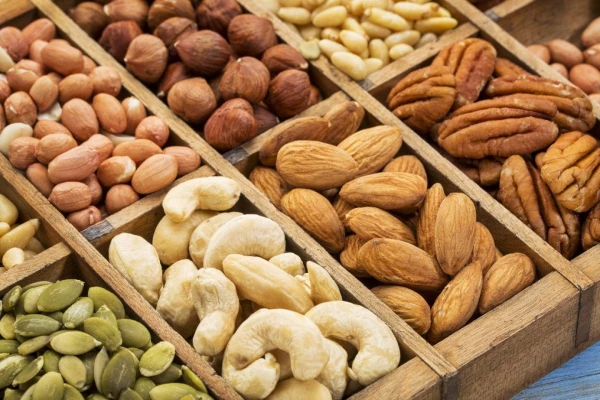
Recently, trends related to health have frequently appeared on social media. This is because Zoomers are more concerned about their well-being than other generations. A new phenomenon has gone viral on TikTok – the serotonin diet. It is followed by those who want to restore balance in their bodies naturally, improve their mood, and enhance their sleep.
Together with functional integrative nutrition specialist Natalia Umanskaya, we explore what the serotonin diet is and what its benefits are.
What is serotonin?
Serotonin is a neurotransmitter and hormone that acts on both the brain and the gut. It influences appetite, emotions, mood, movement, vascular tone, blood pressure, sleep, and much more. With sufficient serotonin levels, a person feels energetic, healthy, happy, and confident. A deficiency in the body can lead to depression, sleep deprivation, and anxiety disorders.
What is the serotonin diet?
Serotonin is also known as the happiness hormone. To follow a serotonin diet, it is important to understand how it enters the body.
– The hormone is synthesized in the body from the amino acid tryptophan. This means that to increase serotonin levels, one needs to consume foods that contain sufficient amounts of tryptophan. It is found in turkey, chicken, fish, dairy products, legumes, and bananas.
– It is also important to include complex carbohydrates in the diet, which help tryptophan penetrate the brain: whole grains, vegetables, fruits, and dried fruits.
– Vitamins from the B group (especially B6 and B9), magnesium, and zinc are necessary for converting tryptophan into serotonin. These can be obtained from leafy green vegetables, avocados, nuts and seeds, fish and seafood, and eggs.
To maintain stable serotonin levels, it is important to eat regularly, avoiding long breaks between meals. Try to avoid foods that lower serotonin levels: alcohol, large amounts of caffeine, and sugar.
What is serotonin syndrome?
An excess of serotonin (serotonin syndrome) can occur from overdosing on medications, supplements, or if one combines foods rich in tryptophan (cheese, nuts, dark chocolate) with antidepressants and migraine medications. However, consuming only foods that increase serotonin production cannot lead to an excess of the hormone. Symptoms of serotonin syndrome include:
– tremor;
– increased heart rate (tachycardia);
– sweating (increased perspiration);
– anxiety or nervousness;
– dilated pupils;
– headache;
– nausea, vomiting, or diarrhea;
– muscle spasms;
– elevated temperature (up to 38–40 °C).
Who should not follow the serotonin diet?
The diet may not be suitable for people with chronic liver or kidney diseases, those taking medications that affect serotonin levels, and those with individual intolerances to certain foods. If you decide to change your diet, it is advisable to consult a specialist. They can help create a menu considering your individual needs.
The serotonin diet does not cure depression or bad moods. It can help improve emotional well-being. It is also important to keep in mind that serotonin levels depend on other factors as well: physical activity, adequate sleep, and stress management.













